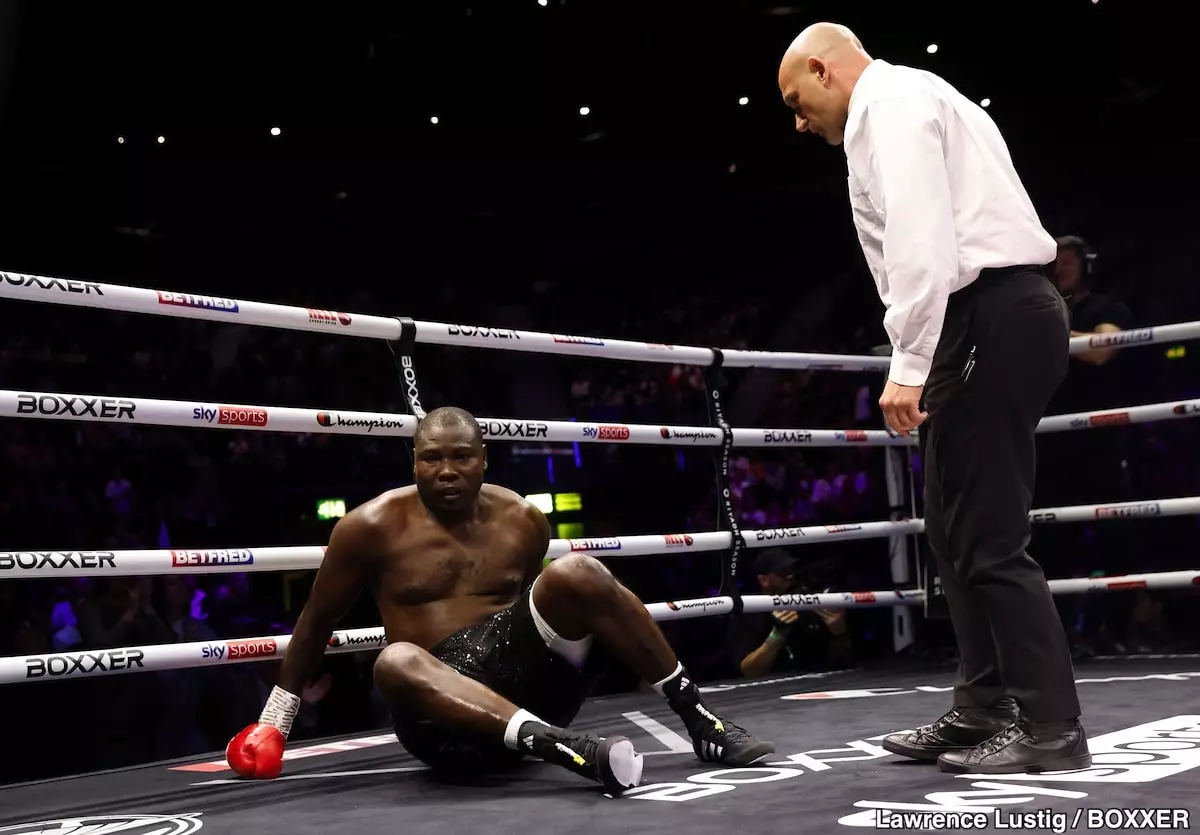In an electrifying return to the boxing ring, Frazer Clarke showcased his formidable skills, quickly asserting dominance over Ebenezer Tetteh. The fight, which lasted a mere two minutes, was a brutal display of power as Clarke unleashed a barrage of heavy punches, ultimately leading to the fight’s cessation. With his invigorating performance, Clarke not only marked this bout as a personal comeback, but he also reaffirmed his status as a contender in the heavyweight arena. However, the evening’s excitement was marred by Tetteh’s explosive reaction post-fight, overshadowing Clarke’s anticipated resurgence.
From the outset, Clarke was a force to be reckoned with. He stormed out of his corner, throwing calculated yet ferocious punches intended to unsettle Tetteh. The initial knockdown came early, signaling Clarke’s intent and tenacity. Tetteh managed to rise, showing resilience, but not without lasting damage. Just as he regained his footing, Clarke landed another punishing right hand, prompting the referee to intervene for Tetteh’s safety. In boxing, such moments are not uncommon; referees are tasked with making crucial decisions to protect fighters from unnecessary harm, and this bout was no exception.
Disgraceful Response
However, what transpired after the referee’s stoppage was an embarrassing incident that drew attention away from Clarke’s performance. In a shocking display of frustration, Tetteh confronted the referee, grabbing his arms in a moment rife with anger and disbelief. This reaction was not only inappropriate but also disrespectful, undermining the sport’s expectations for professionalism and decorum. As security personnel rushed in to defuse the situation, spectators were left to ponder how a fighter could lose control when faced with the realities of the sport.
Tetteh’s behavior was in contradiction to the sportsmanship that should be exemplified in professional boxing. Any fighter, regardless of the outcome, is expected to uphold a certain standard of respect, particularly towards officials who step in to safeguard their well-being. In moments like these, accountability is crucial, and Tetteh’s choice to retaliate against the referee was both a poor reflection on him and an unfortunate distraction from the evening’s main event.
Clarke’s Reflection
In the aftermath of the bout, Frazer Clarke expressed a profound sense of relief and satisfaction with his performance. He had long awaited an opportunity to showcase his abilities and believed that this fight would be pivotal in rebounding from previous setbacks in his career. “I have been crying out for that kind of performance since my debut,” Clarke stated, channeling his past adversities into a revitalized fighting spirit. His journey has not been without challenges, but his resolve to harness those experiences as fuel for future success has become a defining aspect of his professional identity.
Clarke’s determination is palpable; he has ascended from the depths of defeat and has now set his sights on rematch opportunities that could catapult him back into title contention. His interest in facing the winner of the upcoming bout between David Adeleye and Jeamie TKV signals not just ambition, but also a recognition of the competitive landscape he inhabits. Clarke is keen to position himself back among the top fighters, driven by an ingrained desire to prove himself.
Future Aspirations
This resurgence underscores a critical aspect of professional boxing: the ability to rebound from adversity. For Clarke, the raw power he displayed against Tetteh is just one facet of his evolution as a boxer. He acknowledges that every challenge has transformed him into a more formidable competitor. “All that adversity has made me stronger, and going forward, I will take people out,” he emphasized with conviction. The humiliating defeat of his opponent may serve as a relevant reminder that in boxing, true strength is not solely about physical prowess, but mental resilience and respect for the sport, too.
As the boxing scene continues to evolve, Clarke’s comeback journey offers inspiration to many. His experiences represent not just a compelling narrative of triumph but also illuminate the importance of composure and professionalism—both inside and outside the ring. It is this duality that will ultimately determine his legacy as he fervently pursues his goal in what promises to be a competitive landscape ahead.

